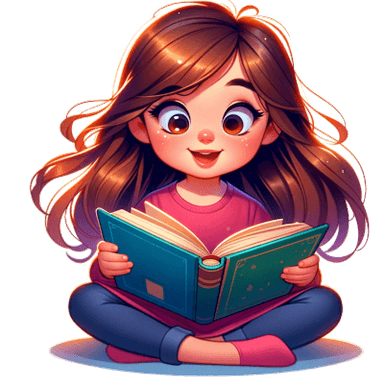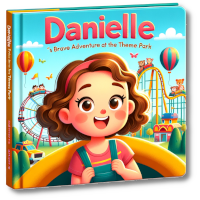Reading with children
a blog by Magic Tales

The Vital Role of Play and Emotional Intelligence in Children's Books and Reading
Play is an integral part of a child's life; it's through play that children develop their understanding of the world around them. When we turn to play from a reading perspective, we see that children's books provide an endless playground for ideation, education, imagination and emotional development.
Play and Emotional Intelligence in Children's Literature
Children's books often hopscotch between reality and imagination, between what is palpably real and what is fabulously invented. The colorful characters that sparkle in children's books allow for interactive engagement. A young reader can tackle tasks and experiences in an imitative manner, often mimicking the behavior of book characters.
Understanding emotions, their impact, and learning to manage them is a fundamental part of emotional intelligence. Emotional intelligence provides a framework for children to make sense of their emotional world, and reading can serve as a beautiful medium to explore this. The variety of emotional expressions children witness in story characters can encourage them to identify and deal with their own feelings.
Effective Tools for Emotional Learning
Books, through their storylines and characters, can help parents and educators impart essential social and emotional learning (SEL) skills. The tale of a rabbit who overcomes fear, a bear who feels left out, or a bird who learns to appreciate its unique song can offer critical lessons on self-awareness, self-management, social awareness, relationship skills, and responsible decision-making.
Stories in children’s books serve as an indirect commentary on what's right or wrong, what's acceptable or unacceptable, and the various feelings one can experience. The beauty of children's stories is that they say the most profound truths in the simplest ways - something children can quickly grasp and internalize.
Books as the Interactive Playground
Stories don't merely entertain. They aid children in understanding not just themselves, but also the world from different perspectives, therefore, increasing their empathy. Furthermore, the interaction with books — touching the pages, engaging with the images, following the text — all create a multi-sensory playground for children. It initiates an active process of understanding, reacting, and connecting.
Reading together offers an intimate space where parents and children can explore the themes and characters in the story. Children receive clear cues from parents' facial expressions and tone of voice about different feelings, thereby, aiding children in understanding their emotions and those of others. This process is key to enhancing emotional intelligence.
Whether your child is a toddler discovering the magic of books or an independent reader delving into the world of fantastical tales on their own, incorporating books and fostering the love for reading can serve as a powerful tool to boost emotional intelligence.
Embrace the power of children's literature. Let your young ones explore the world of words with play and imagination, and in the process, discover a whole new world of emotional strength and intelligence through the pages of their favourite books.
Want a personalized book to read with your child about Play?
Takes as quickly as 30 seconds to create
Create a book about Play

